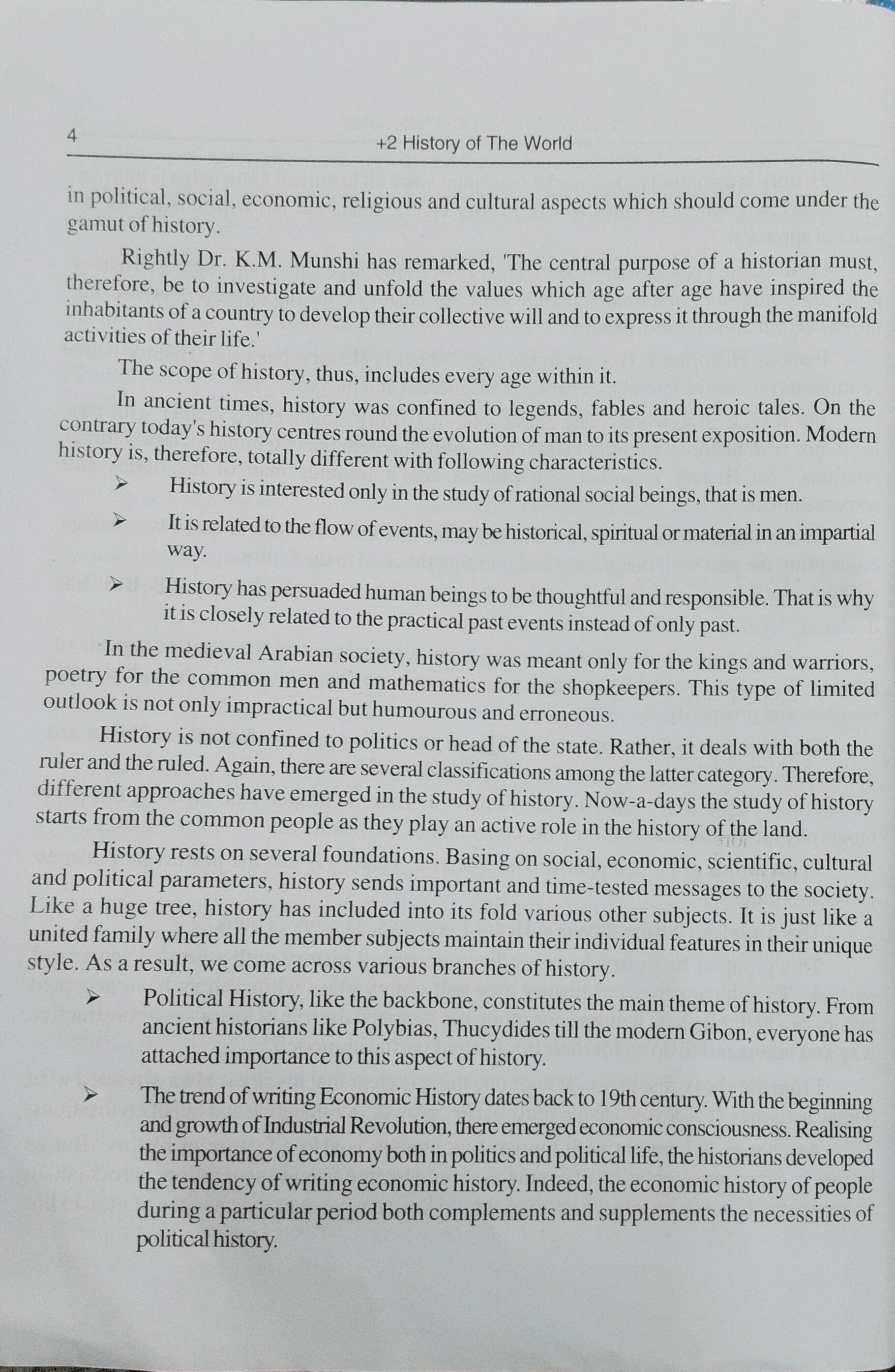History of the World: Key Concepts and Modern Perspectives
History of the World - Key Concepts and Ideas

Definition and Scope of History
- Scope of History: History encompasses political, social, economic, religious, and cultural aspects, indicating its comprehensive nature.
- Thoughts: This multidimensional approach allows us to understand how various factors influence human development and interactions.
Evolution of Historical Study
- Shift from Legends to Modern History: Ancient histories focused on myths and legends, while modern history centers on human evolution and rational analysis.
- Additional Info: This transition signifies a move towards a more factual and evidence-based understanding of past events.
Key Characteristics of Modern History
- Interest in Rational Social Beings: Modern history focuses exclusively on human beings and their actions.
- Thoughts: This human-centric view emphasizes individual agency and collective societal developments.
- Impartial Flow of Events: History examines events, whether historical, spiritual, or material, in an unbiased manner.
- Example: Historians strive to present events without personal bias, allowing for a more accurate representation of the past.
- Encouragement of Thoughtfulness and Responsibility: History teaches lessons from past actions to promote thoughtful decision-making in the present.
- Implication: Understanding past mistakes can guide more responsible governance and social practices today.
Historical Perspectives in Society
- Common People’s Role: Unlike earlier times when history was restricted to rulers and elite classes, modern studies include voices from all societal segments.
- Thoughts: This inclusive approach enriches historical narratives by bringing in diverse experiences and perspectives.
Foundations of Historical Study
- Interconnectedness of Subjects: History integrates various disciplines, emphasizing how they interact and influence one another.
- Example: Just like branches on a tree, different historical subjects—political, economic, scientific—branch out yet are rooted in common historical experiences.
Branches of History
- Political History: Seen as the backbone of historical study, with significant contributions from figures like Polybius and Thucydides.
- Thoughts: Political history is essential for understanding governance, power dynamics, and statecraft throughout different eras.
- Economic History: Emerged notably with the Industrial Revolution, reflecting a heightened awareness of economic factors in societal development.
- Ideas: Recognizing the interplay between economics and politics enhances our understanding of historical progress and conflict.
| Branch of History | Description |
|---|---|
| Political History | The main theme of history, focusing on governance and state affairs. |
| Economic History | Focuses on the economic factors arising post-Industrial Revolution. |
Reference:
ddceutkal.ac.in
$$PDF$$ History UNIT I Concept of History Meaning, Nature and Scope of ...
www.socialstudies.org
Chapter 2—The Themes of Social Studies
scholar.harvard.edu
$$PDF$$ Historical Development - Scholars at Harvard